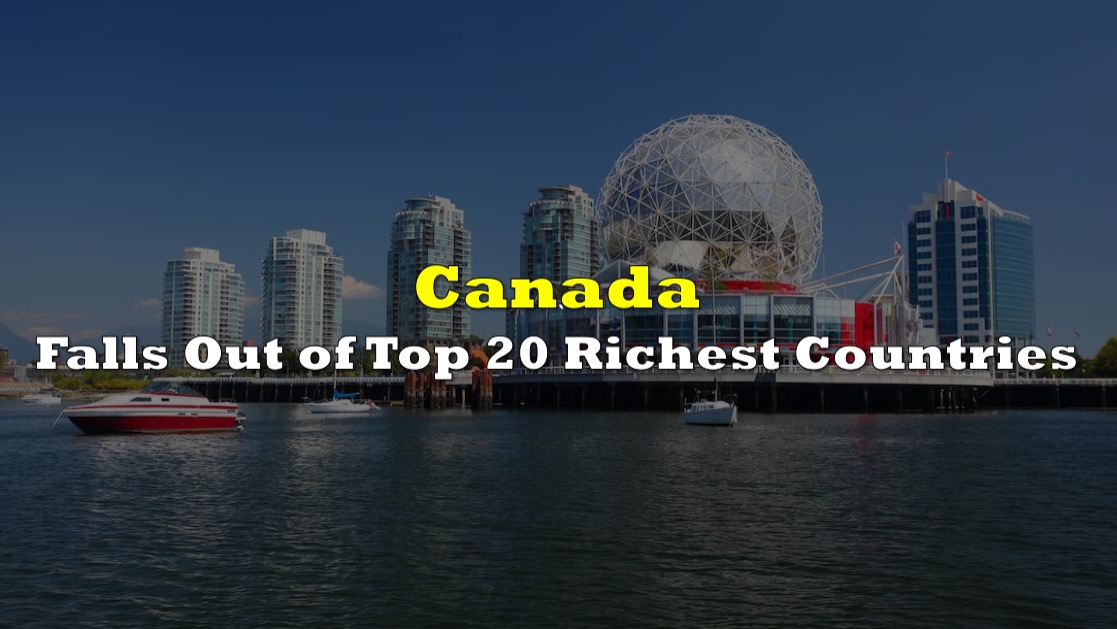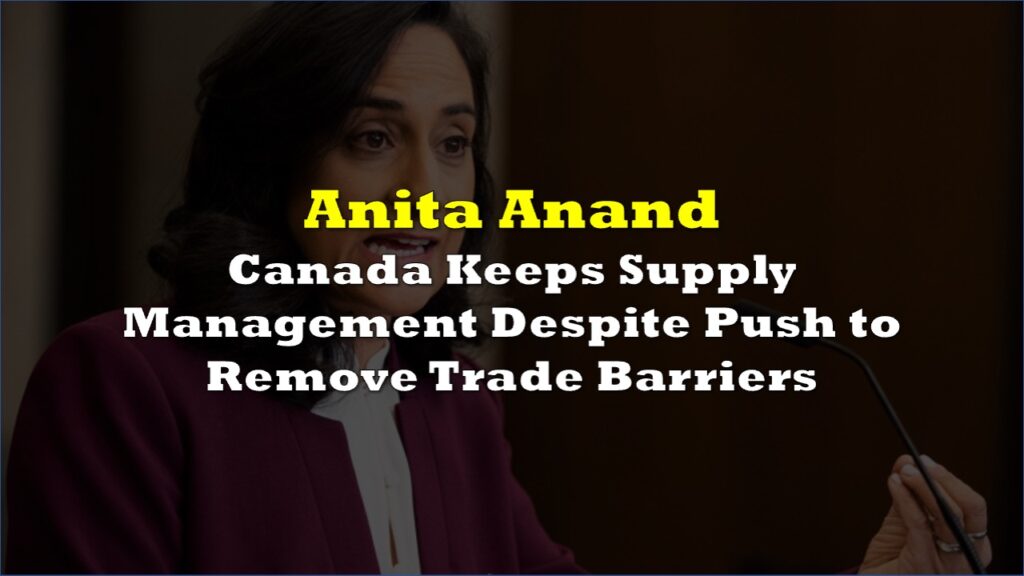Canada has slipped out of the top 20 richest countries, according to The Economist’s comprehensive ranking. The analysis considered three key measures: dollar income per person, adjusted income for local prices (purchasing-power parity or ppp), and income per hour worked.
The global wealth list reveals the complexities of economic comparisons, highlighting how factors like work hours and price adjustments significantly impact a nation’s standing. The United States, with the largest GDP at market exchange rates, ranks only seventh in income per person, dropping to 11th when accounting for workdays and limited holidays.
The Economist:
— CañadaRecord (@CanadaRecord) January 1, 2024
World’s richest countries in 2023 https://t.co/a3EUqiBmyf
RIP Canada pic.twitter.com/CuZkwRpnCC
China, the second-largest economy in nominal terms, takes the 65th spot in GDP per person and 96th in hours worked. European countries like Belgium, Germany, and Sweden climb in the rankings due to lower prices and enviable work-life balances. Luxembourg stands out for its efficient use of wages in local prices, while Norway boasts the world’s highest average income per hour worked.
However, Canada’s fall from the top 20–which came from the 13th spot prior–has not gone unnoticed, with notable figures like “Shark Tank” star Kevin O’Leary openly criticizing the country’s management. Despite Canada’s rich natural resources, O’Leary asserts, “Canada is the richest country on earth run by idiots.”
O’Leary, who previously contemplated a leadership role in Canadian politics, remains critical of Prime Minister Justin Trudeau’s government. A recent Leger poll indicates that only 30% of Canadians express satisfaction with Trudeau’s administration, while 63% report dissatisfaction. Canada also ranks 23rd on The World Bank’s Ease of Doing Business list.
Despite discontent, Canada’s abundant natural resources play a crucial role in the country’s economic landscape. From British Columbia’s forested landscapes to Alberta’s oil-rich sands, Canada possesses diverse and extensive natural wealth. Companies operating in natural resources contribute significantly to the S&P/TSX Composite Index, the benchmark for the Canadian stock market.
However, investors might harbor discontent as the S&P/TSX Composite Index’s 32% return over the past five years pales in comparison to the S&P 500 Index’s 65% return in the United States. Nevertheless, given the strategic importance of natural resources, particularly during inflationary periods, this sector remains a opportunity for investors seeking diversification beyond traditional markets.
Information for this briefing was found via The Economist, Yahoo Finance, and the sources mentioned. The author has no securities or affiliations related to this organization. Not a recommendation to buy or sell. Always do additional research and consult a professional before purchasing a security. The author holds no licenses.










5 Responses
Let’s see, Norway, 1 central gov’t making collective national decisions for 5 million people.
Canada, population of 40 million. 1 central gov’t but we have 10 provinces that have full authority of their natural resources
Nationalizing the oil and gas industry or any other industry that extracts a ‘provincial’ natural resource will result in a unheard of constitutional fight that could split this country apart.
Nationalizing the oil companies would only accelerate their demise under the present federal government. I don’t see how that would help improve our GDP.
Yeah? They don’t seem like they’re undergoing any kind of “demise” at all, let alone an accelerating one. They’ve certainly made less out of what they have than, say, Equinor, which is the only oil company in Norway, owned and controlled by the Norwegian gov’t. It’s among the top oil companies in the world in terms of output, value, reserves… I believe revenue?
In any event, if you’re under the impression that the ratchet-ass debt farms this company calls oil companies are “in demise” under a government that flat out builds them a $30 billion pipeline whenever they cry about it, I don’t know what to tell ya.
We could take a lesson from Norway – another country rich in natural resources.
Totally agree. Nationalize Canadian oilcos. All of them.